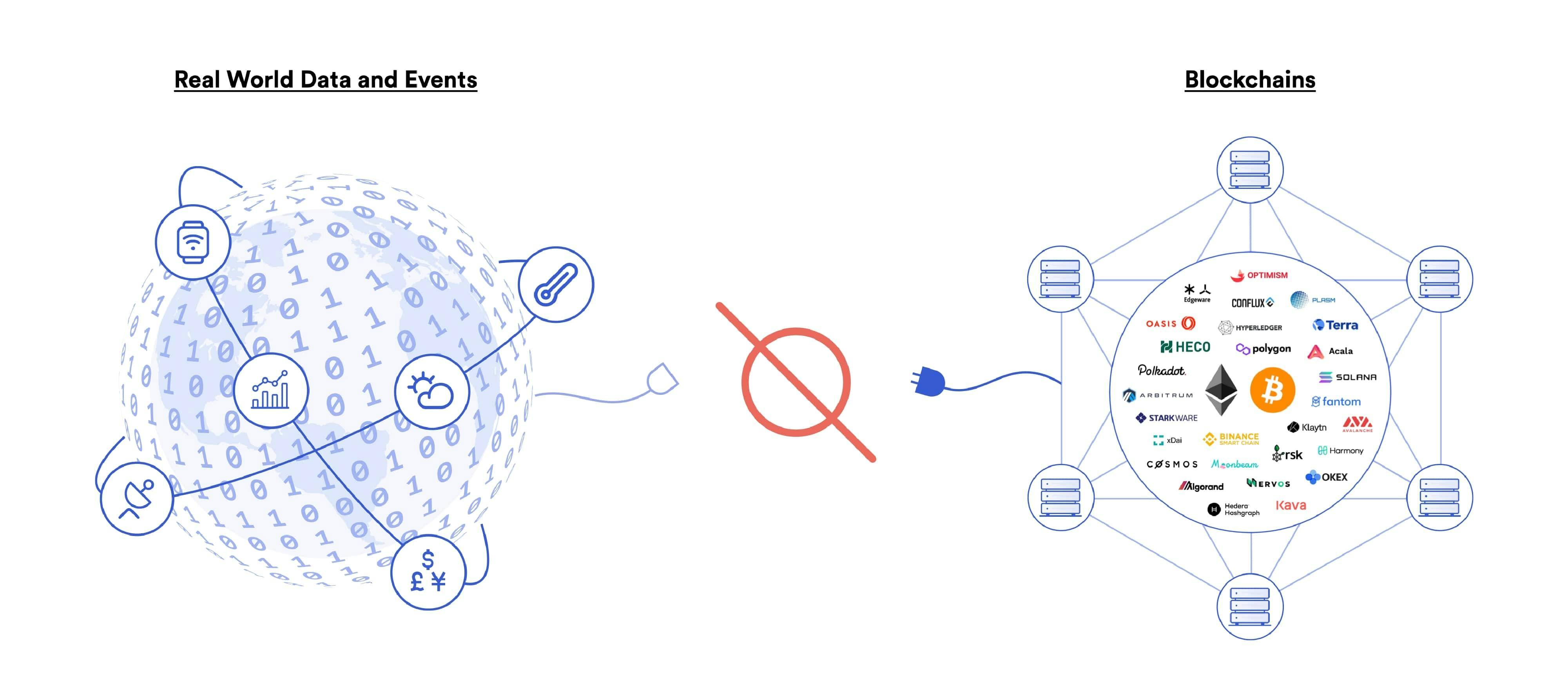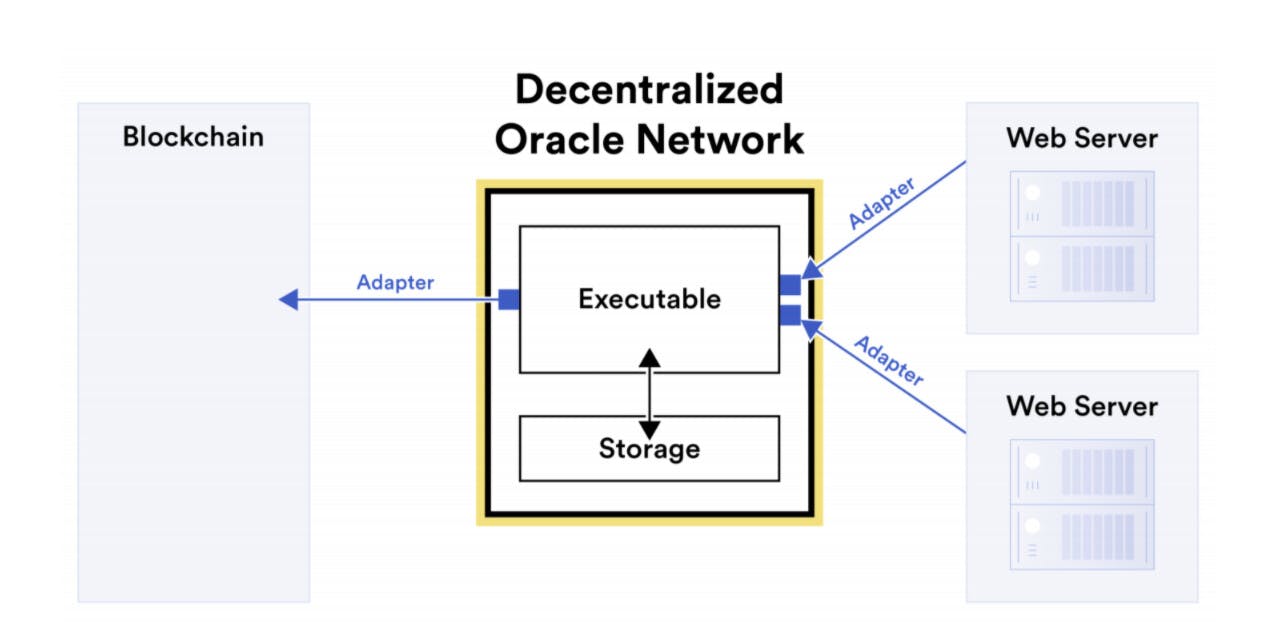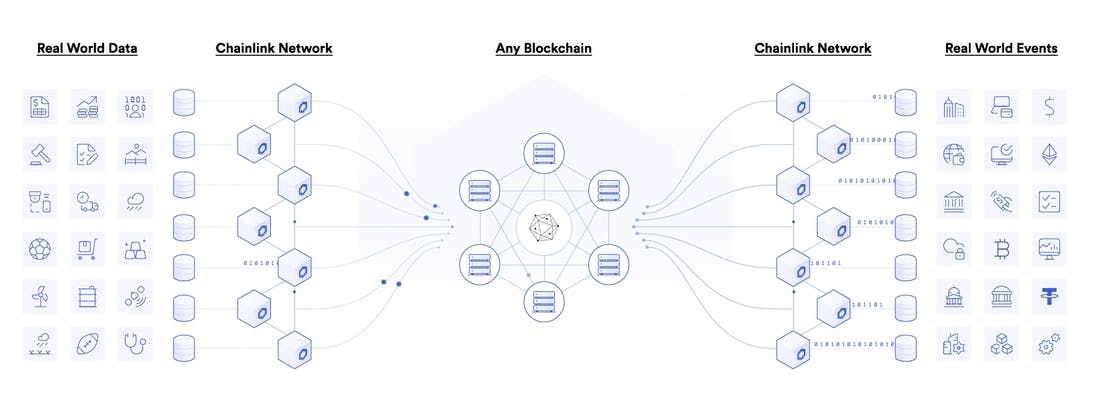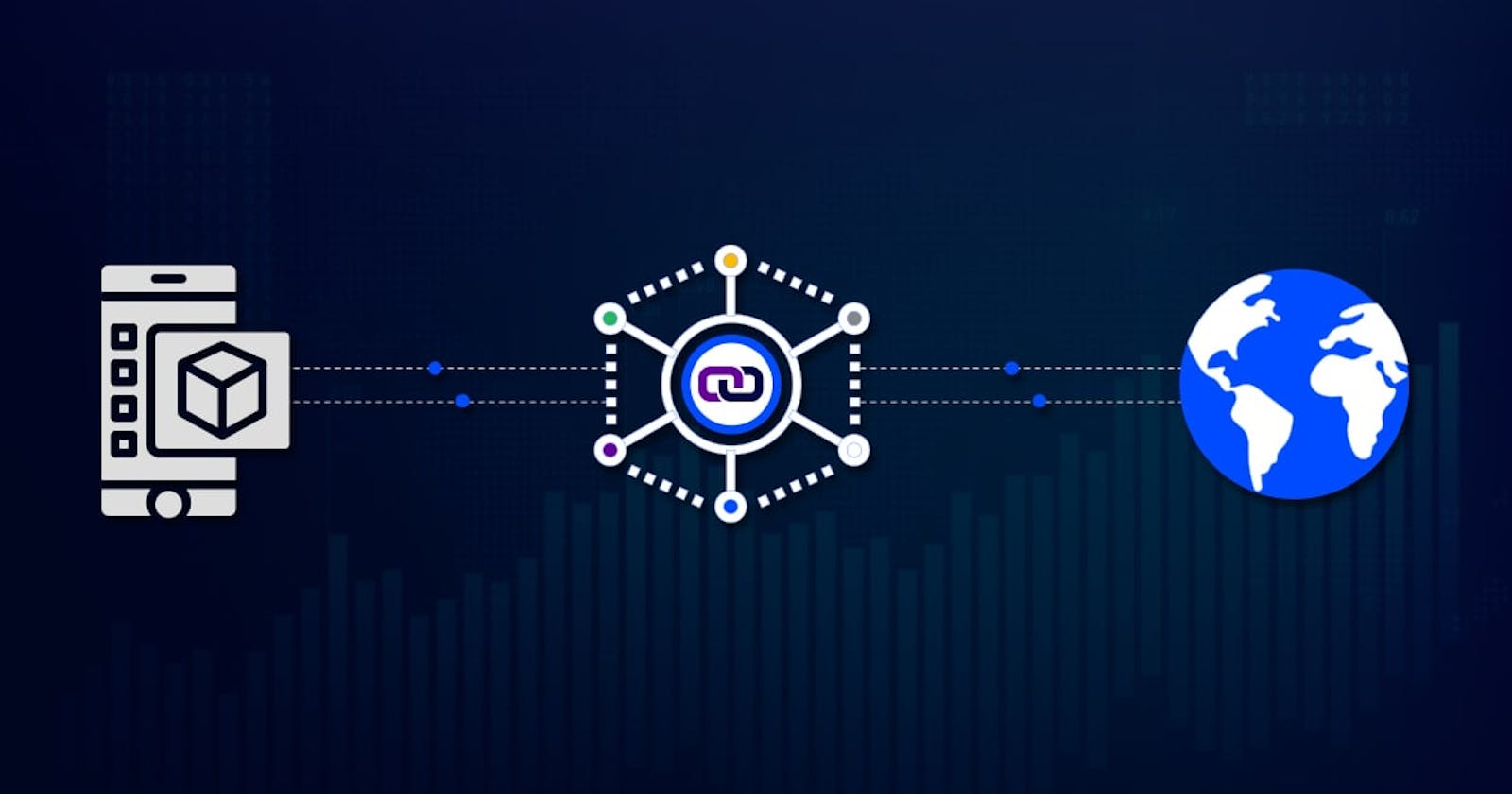Let's understand Oracle Problem
The blockchain smart contracts are basically secure closed loop systems. The fundamental limitation of all blockchains is that they cannot natively interact with outer world systems. And why is this a problem?
When we build decentralized applications it's crucial to get raw data from external data sources, to trigger actions on the occurrence of any event. Since capturing external data is not enabled by default, it greatly limits the real-world use cases and functionalities of blockchain-based solutions. The native lack of connectivity from the outer world is known as "the oracle problem".

What are Blockchain Oracles?
We can understand Blockchain oracles as a middleware which connects smart contracts to any data source requested by the user, which would not be possible natively. It's important to know that blockchains are deterministic systems, which means that data provided by oracles determines the outcome of smart contracts. Again this is a drawback since anyone can develop a smart contract to deliver the output they expect, if this happens it is a fundamental flaw in the entire decentralized architecture. However, to solve this issue developers do not rely on a centralized oracle as they are bound to a single point of failure.
How do we solve this?
Decentralized oracles networks solve the single point of failure by combining data from multiple independent oracle nodes to ensure that the data source is truly decentralized end to end. They enhance blockchains with off-chain services and a secure gateway to other systems. Smart contracts have to pay a limited amount of oracle gas fee to fetch data from these service providers.

Popular decentralized Oracle services
Chainlink
A multi-chain oracle network that provides reliable, tamper-proof input and output data for smart contracts. They offer numerous use cases ranging from Market and Data Feeds, Verifiable random numbers, keepers, proof of reserve, cross-chain communication and much more. The real-world data feeds provided by chainlink are used by leading DeFi protocols such as Aave, Kyber Network, Synthetix, Ampleforth, and others.

Witnet
A reputation-based decentralized oracle network where nodes running the Witnet software gain or lose reputation based on the correctness of data provided, with correctness defined by a consensus algorithm that analyzes node responses. Nodes that disagree with the consensus lose reputation. Benevolent oracles will gain more reputation points and become more likely to be chosen for tasks, which will earn them tokens upon completion.
Happy Reading!
